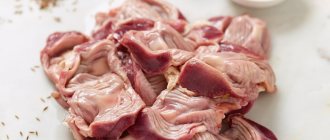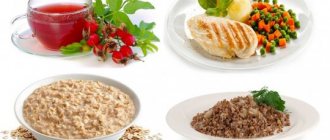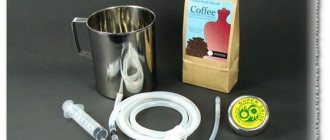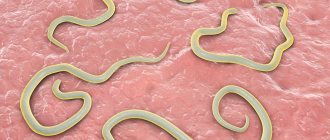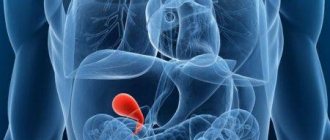Poisoning of the body with chemicals, stale food or waste products of pathogenic microorganisms is often accompanied by intense vomiting and disruption of the integrity of the gastric mucosa. All this leads to pain and can provoke the appearance of erosions.
To eliminate such consequences of intoxication, it is necessary to direct efforts to restore the tissues and functions of the digestive system. Let's take a closer look at how exactly this can be done.
Why does my stomach hurt after poisoning?
Most poisonings occur due to toxic substances entering the gastrointestinal tract. The stomach is the first to take the blow, which provokes the appearance of pain. The reason for this may be the following factors:
- activity of pathogenic microorganisms;
- violation of acid-base balance;
- irritation of the walls of the organ;
- rejection of the mucous layer;
- formation of ulcers and erosions.
Important: toxins provoke the destruction of the mucous membrane that protects the endothelium. Then toxic compounds penetrate into the bloodstream, causing inflammation and disruption of tissue trophism. In severe cases, necrotic processes may develop.
Due to the negative effects of toxins on the stomach, gastritis or gastroduodenitis often develops. The digestive and motor function of the gastrointestinal tract also deteriorates, and dysbacteriosis occurs. Vomiting can cause vascular ruptures and damage to the mucous membrane. All this leads to the occurrence of pain and its persistence for some time after poisoning.
Why is the stomach standing?
Atony in an adult most often develops due to non-compliance with the diet, overeating, or indulging in junk food. But if your stomach is upset, discomfort appears, and unpleasant symptoms occur frequently, it is necessary not only to reconsider your diet, but also to undergo an examination to identify the cause of the deterioration of the digestive system.
The main reasons for gastric stoppage:
- sudden weight loss;
- prolapse of the stomach;
- dental diseases - caries, gingivitis, pathogenic microbes penetrate from the oral cavity into the digestive tract, disrupting its functioning;
- mental and physical fatigue;
- sedentary lifestyle, sedentary work;
- taking medications that negatively affect the functioning of the digestive system;
- smoking, alcoholism - harmful substances negatively affect the tone of the stomach muscles;
- infectious diseases that caused exhaustion - severe flu, pneumonia, dysentery.
A sedentary lifestyle can cause gastric constipation
Often the stomach stops working after operations on the organs of the digestive system; gastric arrest is caused by any surgical intervention that was performed under general anesthesia.
Atony develops after poisoning - pathogenic microorganisms penetrate the digestive system, preventing normal digestion of food, which leads to gastric arrest and vomiting. Similar symptoms occur with a hangover after excessive or prolonged consumption of alcohol.
Stomach dysfunction occurs during pregnancy - at the initial stage the problem can be caused by toxicosis; in the second and third trimesters, peristalsis worsens due to compression of the digestive organs by the uterus.
Bloating and intestinal constipation may indicate the development of pathologies of the nervous system that cause disruption of the innervation of the stomach.
The nature of stomach pain after poisoning
Stomach pain can be of a different nature, depending on the cause that triggered its occurrence.
There are several main types of pain syndrome:
- Sharp, intense. It is predominantly paroxysmal in nature, which is caused by the action of toxins or pathogenic microorganisms. The possibility of formation of erosions and ulcers cannot be excluded.
- Dull, aching. It occurs when the inflamed walls of the gastrointestinal tract are irritated, persists after intense vomiting, and can bother the patient for several days.
- False. There is a feeling of internal pressure and distension of the stomach, which is caused by its overcrowding or swelling.
- True. The nerve receptors of the organ are irritated, but the sensations are often mild.
The localization of pain can also be different:
- In the epigastric zone. The sensations are concentrated directly in the stomach itself, and problems with the pancreas may also occur.
- Closer to the navel. The small intestine is affected, its motor function is impaired, rotting food provokes increased gas formation.
- With irradiation to the right hypochondrium. Indicates an enlarged liver due to increased load on it.
Principles of treatment
Treatment after poisoning is aimed at eliminating the negative effects of toxins, their final removal from the body and stimulating the processes of regeneration of damaged tissues. Thus, the main goals of therapy are:
- final removal of toxins from the body;
- relief of pain symptoms;
- creation of a protective layer for the endothelium;
- restoration of gastrointestinal functions;
- stimulation of mucosal regeneration;
- normalization of microflora balance.
Similar goals can be achieved through the use of a complex of therapeutic measures. The main focus of therapy is taking medications, but it is advisable to reduce the amount of medications used to a minimum so as not to overload the body with chemicals.
Important: additional measures include physiotherapeutic procedures, diet, as well as various folk remedies that do not contradict common sense.
Drug therapy
It is not recommended to use medications without a doctor's prescription, with the exception of sorbents. Incorrectly selected medications can aggravate the problem and provoke even greater intoxication. In addition, some substances affect the properties of the blood, which, if blood vessels are damaged, can lead to internal bleeding.
To restore the stomach after poisoning, the following groups of drugs can be prescribed:
- Sorbents: Activated carbon, Polysorb, Smecta. Binds and removes toxic substances from the body.
- Analgesics and antispasmodics: No-shpa, Papaverine, Spazmalgon. Relieve pain symptoms. The use of Analgin is not recommended.
- Enveloping agents: Phosphalugel, Almagel, Maalox. They create a protective layer for the walls of the stomach and stimulate its regeneration.
- Probiotics: Linex, Hilak Forte, Bifidumbacterin. Helps restore the balance of microflora and fight the effects of dysbacteriosis.
- Enzymatic preparations: Pancreatin, Festal, Mezim Forte. They relieve the burden on the pancreas, support the secretory function of the gastrointestinal tract and promote normal digestion of food.
- Prokinetics: Motilium, Passazhiks, Trimedat. Stimulate peristalsis, restore the motor function of the digestive organs.
Physiotherapy
In case of serious poisoning, it is additionally recommended to undergo a course of physiotherapeutic treatment. It stimulates regenerative processes, relieves pain, improves tissue trophism, and also helps restore the functions of the gastrointestinal tract.
The following procedures are most often prescribed:
- electrophoresis with drugs;
- magnetic therapy;
- laser therapy;
- galvanotherapy;
- balneological procedures;
- massage.
Folk remedies
In order to normalize the functions of the stomach and restore its mucous membrane, a variety of folk recipes are actively used. The most effective means are:
- decoction of flax seeds;
- oatmeal jelly;
- White clay;
- rice starch;
- parsley;
- Melissa;
- caraway;
- Dill seeds;
- barberry;
- cloves with milk;
- knotweed;
- thyme;
- birch mushroom.
Diet therapy
During the period of treatment, you should reconsider your diet and turn to diet therapy. Food should be as healthy as possible and easy to digest. In order not to create additional stress on the gastrointestinal tract and not to provoke repeated stomach cramps, you need to adhere to the following recommendations:
- preference is given to liquid dishes, jelly, puree;
- the menu is based on liquid porridges, steamed cutlets, boiled and stewed vegetables, pureed soups;
- All solid foods are temporarily excluded;
- fatty, spicy, sour, fried foods are excluded from the menu;
- smoked meats, sweets, and pickles are prohibited;
- special attention is paid to the drinking regime;
- meals should be small and frequent;
- food and drink are served warm.
What to do if your stomach stops?
What to do when your stomach doesn't work? Solving such a problem needs to be approached comprehensively. After clarifying the situation that led to the complication, the necessary treatment is prescribed. What should you do if your stomach gets upset?
The child has
It is quite easy to recognize a problem in a child - the symptoms are immediately obvious. The baby constantly cries and refuses to eat. At the first signs, you need to lay the baby on his side, asking him to bend his knees. You can put a warm heating pad on your stomach and leave it in that position for a while. After 15-20 minutes, the child should be given a couple of sips of water and stroke the belly in the navel area clockwise.
If your baby is worried about nausea, try to induce vomiting. You can't feed him, but an hour after the attack, tea is allowed. Food is introduced into the diet gradually.
If a similar problem often recurs in a baby, it is necessary to reconsider the diet. Eliminate foods that cause indigestion and pain from your diet, and be sure to consult a doctor. The specialist will write down recommendations: medicines, herbs to relieve pain and bring organ functions back to normal. It is important to remember that treatment for a child is different from treatment for an adult. Do not give those medications that are suitable for you for the same problem. A child's body may react to them completely differently.
In an adult
If the stomach has stopped in an adult, therapy consists of taking medication and diet therapy. If you feel nauseous, you should take pills to regulate the condition. They help the stomach work, restoring muscle tone and restoring proper movement from the esophagus to the intestines. When consuming intoxication products, it is recommended to take absorbent drugs (“White Coal”).
The next step is to establish proper food intake. In the acute phase, food should be completely abandoned. In subsequent days, portions should be small, eating every 2 hours. Gradually the volume of portions increases.
In pregnant women
The pregnancy period is characterized by new sensations for the expectant mother - nausea, a feeling that food is in a lump in the stomach. Constipation often bothers women even with proper nutrition. The solution in this situation is to eat often and in small portions. Attention should be paid to dietary products. If adjusting your diet during pregnancy does not help to cope with the problem, the symptoms become pronounced, you should contact a gastroenterologist. Tablets “Festal”, “Gevixon”, “Pancreatin” are medications that create a favorable environment for the stomach to work.
Pregnancy is a period when a woman is responsible not only for her own health, but also for the health of the baby. If you cannot relieve the discomfort, call an ambulance. Sometimes, such phenomena indicate serious complications in the functioning of the gastrointestinal tract.
Causes of weakness after poisoning
Poisoning is a pathological process that involves all organ systems. Weakness after poisoning and abdominal pain occur because the body is struggling with toxic waste substances. This is characterized by the following manifestations:
- Vomiting, diarrhea – removal of toxic substances through the organs of the excretory system.
- Increased temperature and increased sweating lead to thickening of the blood.
- With severe intoxication, pathological processes occur in the pancreas.
- Dry mucous membranes, thirst due to impaired water-salt balance and dehydration.
- Impaired glomerular filtration of the kidneys and decreased liver function.
How long does it take for the body to recover?
The duration of rehabilitation is individual, depending on the age of the patient and the degree of intoxication. As a rule, the body of a healthy person copes with toxic substances in 1-3 days. It is more difficult for older people and children to deal with intoxication.
Treatment includes restoration of intestinal microflora and normalization of the functioning of the gastrointestinal tract. To recover faster, taking medications is combined with a proper diet and traditional methods. Sauerkraut promotes the appearance of beneficial bacteria, lingonberries prevent putrefactive processes, herbal teas have an antiseptic effect.
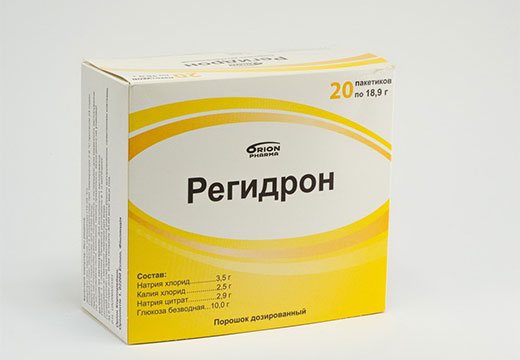
Ways to start normal stomach function
- An emergency measure - inducing artificial vomiting - will help to restart the stomach after severe poisoning. For the procedure, prepare cool boiled water or a weak solution of potassium permanganate. Drink and induce vomiting by finger pressing on the root of the tongue. When clean water begins to come out after washing, stop the activity. The cleansing procedure is important for patients in whom food poisoning is asymptomatic and toxins harm internal organs.
- An adsorbent - activated carbon tablets - will help remove symptoms of discharge. The dosage of the drug is calculated based on body weight.
- If you are poisoned, follow a diet, do not overfill your stomach, and do not allow its walls to stretch. Eat small meals, 5-6 times a day. In case of serious intoxication, you can fast for the first day and drink plenty of fluids (water, mineral water, green tea, herbal decoctions). Do not drink sweet carbonated drinks and alcohol, do not add sugar. Store-bought juices and nectars will not cleanse the body; they contain preservatives, dyes, and harmful additives.
- A fasting day will help cleanse your stomach; eat foods that will not cause re-irritation. You are allowed to eat boiled meat, lean fish, fresh vegetables, and rice porridge. During unloading, exclude sweet, flour, fried, salty foods, any food that is difficult for the stomach to digest. Eat boiled and steamed vegetables, but do not eat fast food, canned food, or fried foods. Don't force yourself to eat.
- Immediately after unloading, diversify the menu gradually. Start the transition with crackers or dietary, steamed porridge, without oil. A fasting day is a way to start a “reboot” of the nutrition system.
- Take care of preventing dehydration. The child is prescribed electrolytes Regidron and Galactin. If there are no medications in the medicine cabinet, a solution to restore the water-salt balance is prepared independently at home. To do this, add soda, salt (0.5 tsp each), sugar (1 tbsp) to the water and mix. The shelf life of the solution is no more than a day.
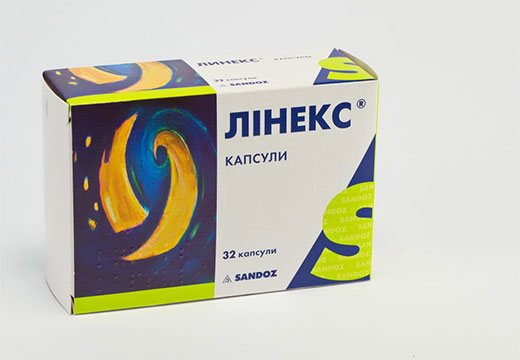
How to cope with atony at home
Mild forms of atony can be treated at home. If you do not adhere to the diet, eat monotonously, and at different times, signs of atony cannot be ruled out: belching, flatulence, nausea, pain in the stomach projection. Before consulting a doctor, you can take emergency measures to restore digestive function:
- cinnamon decoction - stir 1 tsp. cinnamon powder in 200 ml of hot water, boil for 5 minutes, drink this decoction before each meal;
- milk thistle seeds - chewing tsp. seeds of this plant three times a day;
- soda - to prepare this fast-acting remedy, used for more than one generation, you need to dissolve ½ tsp. soda in 200 ml of very hot water, drink after cooling, after 5 minutes you can expect significant relief.
- A collection of fennel fruits, marshmallow and alder bark - pour 250 ml of boiling water over 1 tbsp. l. mixture of herbs, bring to a boil, leave for half an hour. The course of treatment with this decoction continues for 30 days.
Home remedies for treating atony include activated charcoal, green tea, and streamlining your diet. A strictly observed diet, excellent mood during meals, and thorough chewing of food are an excellent preventive measure for preventing stomach atony. Patients at risk are recommended to undergo an annual preventive course of herbal treatment on the recommendation of a doctor.
To treat gastric atony, you should consult a doctor who will make an accurate diagnosis and prescribe treatment. It is impossible to significantly improve the state of health and impaired innervation of muscle fibers without eliminating the causes of the disease, correcting the diet and diet.
In addition to seeing a doctor and drug treatment, it is important to find out how to get your stomach started after poisoning and what you can eat? After all, some relief of the condition and a decrease in temperature do not yet indicate complete recovery. Sometimes the recovery stage takes up to 2 weeks. Doctors have developed a generally accepted rehabilitation plan, which is based on a proper diet.
Review of medications for restoring intestinal microflora
Probiotics and prebiotics will help restore intestinal microflora. Medicines are prescribed by a doctor; purchase them in advance at the pharmacy.
| Medicine | Pharmacological group | Features, method of application |
| Linex | Probiotic | Prevention of dysbiosis, helps improve intestinal function by replenishing the amount of normal microflora. Dosage: for children under 12 years old – 1 capsule 3 times a day; for children over 12 years of age and adults – 2 capsules 3 times a day. |
| Bificol | Probiotic | Contains live bifidobacteria and has an immunomodulatory function. Launches restoration processes in the stomach. Suitable for chronic dysbacteriosis, after-treatment of intestinal infections. Dosage - depending on the disease and age of the patient. |
| Bifidumbacterin | Probiotic | Indications for use: dysbacteriosis, prevention and treatment of infectious intestinal diseases. Take orally during meals. |
| Lactusan | Prebiotic | Promotes the removal of toxic substances in cases of dysbacteriosis, constipation, colitis, toxicosis of pregnant women. Taken to prevent salmonellosis. In childhood, the dosage per day is 10 ml. (divided into 2 doses), for adults – 20 ml./day. |
| Prelax | Prebiotic | Taken for constipation and the need to cleanse the gastrointestinal tract by softening the stool. The main component is lactulose syrup. |
| Hilak Forte | Prebiotic | Restoration of microflora, water balance and normal stomach acidity. Taking the drug for more than 2 days is possible after consulting a doctor. |
How to start the stomach: why the organ may not work, and how this manifests itself
Stomach arrest (atony) is not a simple condition in the functioning of the digestive system. With this pathology, clear symptoms appear, such as nausea, belching, loss of appetite, pain, weakness and other sensations.
Gastric constipation can be caused by many reasons. The first of them are considered to be: unhealthy diet, regular overeating, eating at the wrong time, exhaustion. An organ that is lazy to work has serious disruptions in the functioning of the gastrointestinal tract.
With such problems, you need to consult a doctor who knows how to get your stomach started. He will prescribe appropriate examination and treatment, which necessarily includes diet therapy. In order for this organ to begin to properly perform its functions, it is necessary that the food be at the right temperature and also have a certain acidity.
Why it might not work
When there is a disruption in the department that is responsible for peristalsis, the stomach can slow down. With a decrease in muscle tone, motor passivity of the organ occurs. As a result, he stops.
If the cause of this fact is an infection, then the intoxication of the body, accompanied by high body temperature and pain, stands out clearly among the clinical picture.
The main cause of atony is known to everyone, because it is widespread in our society. This is due to poor nutrition: junk food, disruptions in diet, snacking, etc. All this adversely affects the functioning of the stomach and the entire digestive tract.
Also, bloating can occur from the fact that a person swallows food in a hurry without chewing it well. At the same time, the stomach begins to expend a lot of effort in order to digest food. In the future, this can lead to the development of putrefactive processes in the organ, as well as other unpleasant consequences.
The reason for the stop may be other factors, but they are not so common:
- Disturbance in the functioning of the nervous system.
- Bad habits that result in impaired blood flow. This could be constant smoking, overeating, or alcohol abuse.
- Dramatic weight loss.
- Viral diseases.
- Severe fatigue or emotional state.
- Using a diet that is not appropriate for the patient.
If you consult a doctor in a timely manner and take treatment, you can quickly overcome this condition and improve the functioning of the digestive system.
What to do if a child or an adult has an upset stomach
When a person has a similar problem, he immediately begins to think about how to get rid of the unpleasant illness. This issue must be approached comprehensively. Treatment of atony includes: drug therapy, diet, exercise therapy and traditional medicine recipes.
It is worth noting that special attention should be paid to such an item in the treatment of the stomach as diet. It is thanks to proper nutrition that the patient will be able to protect the gastrointestinal tract from further complications, as well as provide the body with useful substances. Treatment is prescribed by the doctor taking into account the individual characteristics of the patient.
What to do if your stomach is upset, and you feel discomfort and burning inside? In addition, the patient suffers from intestinal dysfunction and other unpleasant symptoms. This situation can occur not only in adults, but also in children of different ages. Therefore, it is important to know what first aid can be provided to the patient.
The child has
A disease such as gastric arrest in children is determined quickly. Its symptoms appear immediately and look very vivid. The child's condition becomes depressed and painful. He is constantly capricious and eats poorly or refuses to eat at all.
For first aid, you need to lay the baby on either side, with the knees bent. Next, you need to put a warm heating pad on the patient’s stomach and warm it up for half an hour.
After this, the child should drink a glass of warm water. Now he should stroke his tummy clockwise. This procedure can last up to 30 minutes.
If the child feels nauseated when stopping, it is better to induce vomiting. Then vomiting will help clear the stomach of the food bolus, after which it can resume its functions. If a similar condition recurs in a child with some consistency, it is necessary to reconsider his diet. It is better not to eat foods that cause indigestion at all.
In an adult
The main method of treating atony in adults is taking medications in combination with an appropriate diet. If nausea occurs during an attack of illness, the patient should take medications that can normalize the condition of the stomach and extinguish the intoxication coming from certain foods.
Special preparations can restore muscle tone, which will begin to move the food bolus towards the intestines. Thus, the functions of the stomach and other digestive organs will resume. Often when stopping, folk remedies are used. They will not only support the functioning of the organ, but will also help the body get rid of toxins and other harmful elements.
During the period of exacerbation of the disease, doctors advise not to take any food until the unpleasant symptoms disappear. After your condition improves, you need to eat small portions every two hours. If the functioning of the digestive system is disrupted, when the patient suffers from acute pain, it is first of all important to establish proper nutrition.
In pregnant women
Gastric arrest in women who are developing fetuses inside is common. This is due to large-scale changes in the functioning of the body. What to do if pregnant women have a stomach upset? To prevent this condition, you need to remember the basic rule - eat right. Otherwise, pain, problems with stool, etc. may appear.
To prevent the disease, doctors recommend that expectant mothers eat natural foods. The diet should consist mainly of fruits and vegetables, especially fresh ones. You should eat food often, but in small portions. If improvement does not occur even after following a diet, you should contact a gastroenterologist who will prescribe gentle treatment.
Doctors' recommendations
As medical practice has shown, all patients suffering from frequent gastric arrest can be combined into one group. The cause of their diseases is mainly poor nutrition. In addition, this fact can be attributed to the occurrence of many other diseases of the gastrointestinal tract.
Experts recommend not to overeat, especially before going to bed.
Stopping problems are often encountered by people who are forced to take snacks or eat on the go due to the specifics of their work. In this case, the food is swallowed in large pieces, so during digestion there is a large load on the stomach, which it simply cannot cope with.
https://www.youtube.com/watch?v=rsRHGzXMnmY
In order to get rid of unpleasant symptoms and get the organ working again, doctors suggest following simple recommendations, which we have written about more than once.
Food should be taken in small quantities every 2-3 hours. After the condition improves, increase the portions gradually. During the period of inflammation, avoid eating rice, boiled eggs, and pears. Do not drink drinks with gas.
Source: https://med88.ru/zapor/kak-zapustit-zheludok/
The effectiveness of taking vitamins
Fasting days involve mainly eating heat-treated food. High temperatures destroy many vitamins and minerals. After your general health improves (after 2-3 days), take a complex of vitamins.
Recovery after poisoning includes taking the following vitamins:
- group A - for the prevention of infectious diseases, help strengthen the immune system;
- B vitamins are necessary to normalize appetite and improve the functioning of the digestive system;
- vitamin PP contributes to the production of gastric juice in the required quantity and the prevention of diarrhea;
- folic acid improves the regeneration of damaged cells.
Products containing pectins (apples, citrus fruits) are useful for restoring the digestive system. Taking brewer's yeast and fish oil for two weeks will restore the immune defense of the mucous membranes.
Vitamins and minerals are taken within a month after poisoning to completely normalize metabolism. Taking vitamins promotes high-quality digestion and speedy restoration of the gastrointestinal tract.
Preventing poisoning is easier than recovering from intoxication. To avoid poisoning, observe the expiration dates of products, check the integrity of the packaging, and make sure that the products are stored correctly. Consume cooked food within 1-2 days. Establish the necessary hygiene and cleanliness regime in the kitchen, the risk of food poisoning will be minimized.
How you can restore your stomach after poisoning is something each of us should know. Because no one is safe from poisoning. Whatever the causes of intoxication, in any case the digestive organ is injured. How to restart the stomach after poisoning so that it returns to normal faster; there is a certain algorithm of actions for this.

Diet rules if you have an upset stomach
Since problems with the digestive system are caused by foods and malnutrition, a properly regulated diet will help prevent the stomach from getting up:
- equipped comfortable, quiet dining place;
- leaving the table with a slight feeling of hunger;
- holding a fasting day once a week;
- including a sufficient amount of vegetables, fruits and herbs in the menu;
- eating non-hot ready meals.
How you can restore your stomach after poisoning is something each of us should know. Because no one is safe from poisoning. Whatever the causes of intoxication, in any case the digestive organ is injured. How to restart the stomach after poisoning so that it returns to normal faster; there is a certain algorithm of actions for this.
What happens during poisoning
Poisoning occurs when low-quality food, chemicals, medications, or large amounts of alcohol enter the stomach. You can be poisoned by exotic foods, fish, mushrooms, and berries. This can happen to anyone at least once in their life. Symptoms of poisoning are:
- Severe nausea, vomiting, diarrhea.
- Sometimes fever.
- Weakness to the point of confusion or loss of consciousness.
It all depends on the amount of toxic substances entering the body. The more there are, the stronger the impact on all organs and systems. And in the digestive organ, inflammation of the mucous membrane occurs. The glands that produce gastric secretions and mucus are the first to suffer. They need time and help to recover faster. In the first days after the incident, it is in vain to expect good functioning of the digestive organ. A person may feel signs of gastritis, a "nervous" or "irritable" stomach. Restoration of the mucous membrane, as well as intestinal microflora, depends on timely and adequate assistance.
We must act quickly
When poisoning occurs, you need to act quickly:
- Clear the stomach of poisons by rinsing and taking absorbent substances after vomiting.
- Drink more water with soda added (2 tbsp per liter) and start treatment as soon as possible.
- Ensure the restoration of normal functioning of the gastrointestinal tract with the help of a therapeutic diet.
Even if the poisoning was mild and medical attention was not required, it is worth consulting with your doctor about further restoration of the stomach after poisoning.
Recovery Diet
How to restore the stomach after poisoning, with the help of diet, medications, or both at the same time, the doctor will tell you about this after a thorough examination and the results obtained. But in any case, food restrictions have similar features:
- On the first day, food is excluded altogether.
- Refusal in the first two to three days after the incident from fried, salty, smoked, spicy foods.
- Banned in the first days are soda, sweets, chips, as well as alcoholic beverages and confectionery.
- Whole cow's milk can be drunk in very limited quantities.
But still, the first point of the rules on how to restore the stomach after poisoning is to drink as much water as possible - at normal room temperature. You can drink still mineral water with saline solutions from the pharmacy (Regidron, Gastrolit, and so on). This will allow you to get your stomach moving faster.
What foods can you eat after poisoning?
Typically, the acute process of food poisoning lasts 2–3 days. At this time it is better not to eat anything at all, especially if there is no appetite
.
Drink more water, pharmaceutical solutions to maintain salt balance, weak green tea with sugar. You can eat dried white bread
. Then liquid porridges with water are introduced into the diet: oatmeal, rice. In addition to the enveloping effect, they perfectly neutralize alkaline decomposition products in case of poisoning.
How to restore stomach function after poisoning with the help of diet? In addition to the cereals mentioned, the following food groups are recommended:
- cereals: buckwheat and corn;
- mashed potatoes without oil;
- salted cheese;
- boiled or stewed sea fish;
- fruits are consumed in the form of puree: bananas, baked apples, dried fruit compotes;
- It is useful to eat borscht made from sauerkraut; some salty foods are also allowed: herring or sprat;
- after a week, boiled or steamed meat is introduced - lean chicken, rabbit, veal;
- Cottage cheese is a useful dairy product during this period.
The temperature of the food should be pleasantly warm, but not hot. From liquids, it is good to drink jelly, green tea, and then add diluted juices.
The entry of bifidobacteria into the body is necessary in order to restore the microflora of the stomach and intestines. Kefir, yogurt and yogurt begin to be consumed 3-5 days after the stomach calms down.
Restore water-alkaline balance
After food poisoning, the body tries to cleanse itself. It flushes out harmful substances in the form of vomiting, diarrhea, and sweating. This is a normal reaction of the body and good functioning of the immune system. But if the patient has lost a lot of fluid, this can also have serious consequences. Water plays a very important role in all processes, and when it leaves, it also washes away all the minerals and vitamins necessary for life. Therefore, restoring the water-alkaline balance is an important task. To do this you need:
- On the first day, drink still water, or salted water. It is not difficult to prepare the solution yourself. To do this, you will need a glass of water, a tablespoon of sugar, 1/8 teaspoon of salt and soda on the tip of a knife. You need to drink this solution 2-3 times a day. You can follow the scheme - two tablespoons of solution every 5 minutes for an hour. Be sure to drink it with a glass of still mineral water or just boiled water. You can use the pharmacy Regidron to prepare the solution. It is necessary to take the solution both during vomiting and after vomiting.
- Cope with pain. For these purposes, herbs that restore the mucous membrane of the digestive organ are suitable: mint tea, chamomile or calendula tincture. Take a tablespoon of dry herb in a glass of boiling water and leave for 15 minutes. And then drink half a glass twice a day.
- On the second and third days, you can already drink tea with a small amount of sugar. Rosehip infusion is very good. This berry causes liquid to quickly leave the body, removes poisons from the intestines, kidneys, and will help start the functioning of the entire digestive tract.
- Chicory infusion will help make the digestive system work again as before. For this, 2-3 tbsp. l. powder is poured with boiling water. After a day, you can strain and drink, dividing into two portions and drinking before meals in the morning and evening.
You should not force your damaged stomach to work by eating a lot of food. On the contrary, start your stomach slowly by eating light and diet foods. You need to eat fractionally, 5-6 times a day in small portions.
Help from folk remedies
At home, you can do without medications and replace them with herbal decoctions. Herbs can not only make the organ work, but also cleanse it of the effects of intoxication.
Cinnamon
No one would have thought that ordinary cinnamon could improve the situation. To make a medicinal drink, 1 tsp is enough. pour 200 ml of hot water. Stir thoroughly, bring to a boil and boil for 5 minutes. The drink must be taken on an empty stomach, half an hour before meals. Cinnamon decoction is not recommended for use more than 4 times a day.
Fennel decoction
To prepare the decoction, mix buckthorn, marshmallow root and fennel. A tablespoon of the mixture is poured into a glass of boiling water, brought to a boil and left for 30 minutes so that the beneficial properties of the herbs remain in the liquid. For a month, after lunch (breakfast, dinner), you need to drink 200 ml of decoction.
Taking milk thistle
If your stomach starts to hurt, milk thistle powder will help. You can buy it at the pharmacy and start taking it 6 times a day, 1 tsp. After a course of herbal medicine, you need to consolidate the effect. To do this you will need plant seeds: 1 tsp. seeds three times a day.
Using baking soda
You can resort to a time-tested method. 0.5 tsp. soda, pour a glass of hot water, stir and drink. After a short time, belching appears, but the stomach does not hurt or feel nauseous.
Enveloping breakfasts and vegetable lunches
After poisoning, the mucous membrane of the digestive organ is inflamed, and the intestines are damaged, so the stomach hurts. And it would be appropriate to cook porridge with enveloping properties (rice, oatmeal) for breakfast, and maybe even for dinner. All kinds of jelly are also good.
The liver also suffers after poisoning. She needs the following diet:
- Exclude fried foods, flour, legumes, fatty meat broths, coffee, pepper, garlic.
- Prepare decoctions of rose hips (they remove toxins), and a decoction of milk thistle or St. John's wort is also suitable for these purposes. Herbs can be bought at the pharmacy. Dandelion root is also good.
Yogurt, homemade yogurt, kefir, and low-fat cottage cheese will help restore the intestinal microflora. If you need to restore your health faster, you will need to take medications. For example, Linex, Lactiale, Probiotic, Biologist-forte, Bifiform. These are living microorganisms that populate the intestines and multiply rapidly. And drugs such as Hilak Forte, waste products of microorganisms, become a breeding ground for beneficial bacteria, giving them the opportunity to multiply faster. Medicines such as Creon and Panzinorm are good for restoring gastrointestinal function. These are enzyme preparations that can heal the affected digestive system.
Be patient and everything will be fine
Restoring normal function of the digestive organ takes time. You must patiently follow all the doctor’s instructions, who will tell you what to treat and how to eat.
In the first week of a therapeutic diet, the following are usually allowed:
- all porridges cooked in water;
- boiled potatoes without oil;
- fruits;
- low-fat cottage cheese;
- Steamed fish.
And the second week can be diversified with boiled lean meat. It will not be superfluous to include light vegetable soups in your diet. Fermented milk products are also good during this period, but not immediately, but for 4-5 days. And if the poisoning was severe, then you can start drinking milk only from the second week.
Important! Food should not be overheated or too cold. It should be warm.
What not to eat after poisoning
At first, you should limit animal proteins. This food is difficult for the human body to digest, and then many harmful metabolic products are released. Such a load interferes with the recovery of the stomach after poisoning
. Gastroenterologists do not recommend consuming meat, eggs, milk and fermented milk products for one to two weeks after the acute course of the disease. It is also strictly prohibited to eat the following foods during this period:
- all generally accepted junk food: canned food, sausages, smoked meats;
- fried, pickled, spicy or food with a lot of spices;
- pears, plums, grapes;
- millet, pearl barley, barley porridge, fresh bread, pastries;
- coffee, soda;
- sweets - they do not recommend consuming even such a healthy product as honey;
- fatty, including butter and vegetable oils;
- vegetables, fruits, berries in raw form.
It is also necessary to refrain from drinking alcohol and smoking. Alcohol and nicotine have a destructive effect even on a healthy stomach, let alone an organism that has suffered poisoning.
Strictly prohibited products for poisoning
In any case, on the first day all food is prohibited. But even in the following days there is a list of foods that are not recommended to be eaten after poisoning. These include:
- smoked meats and canned food;
- fried and spiced foods;
- grapes and plums;
- coffee and coffee drinks;
- vegetable oil;
- sweets, cakes, jam, chocolate.
You should not drink alcoholic beverages either. It will only cause additional irritation to the digestive organ.
